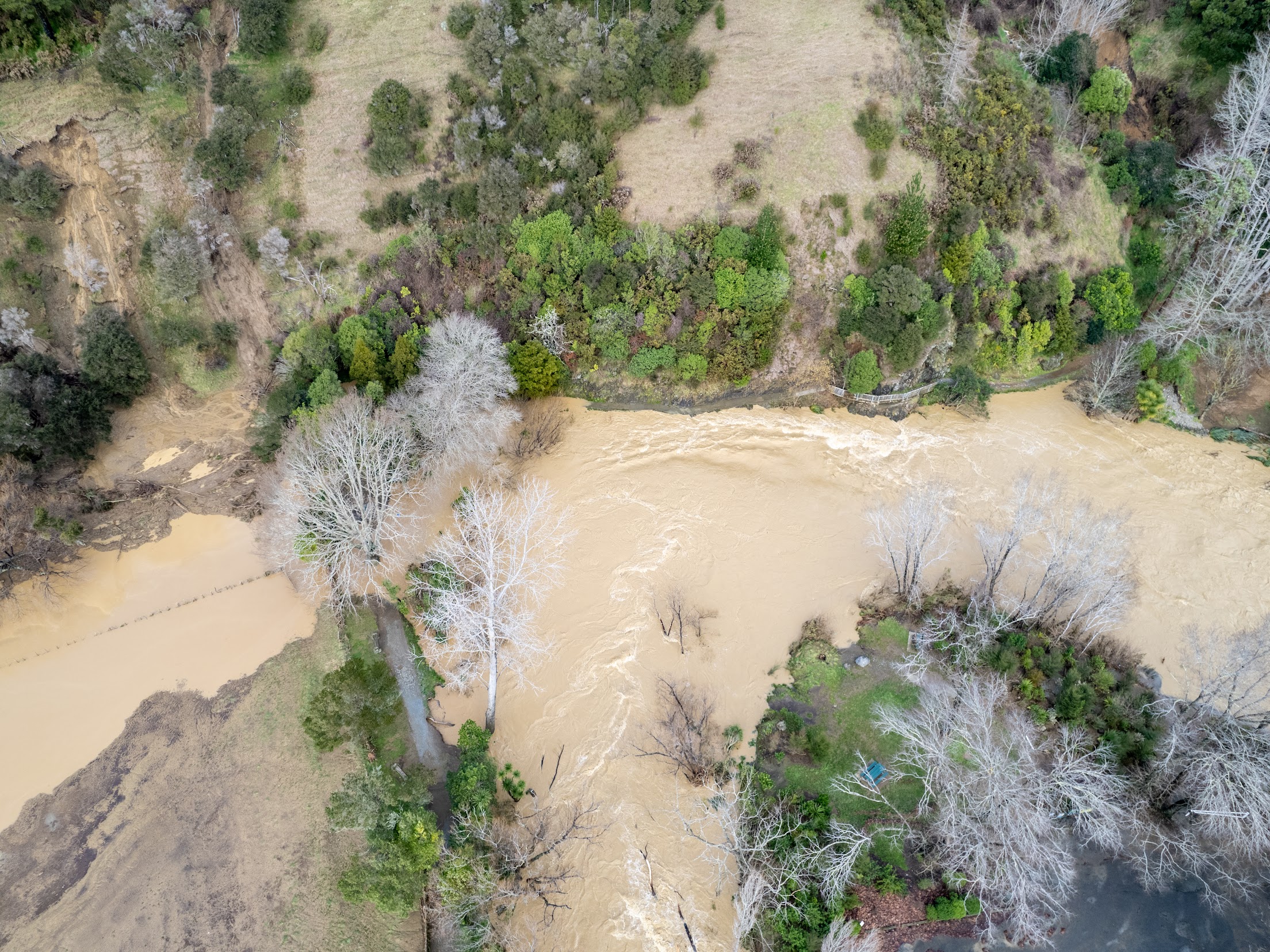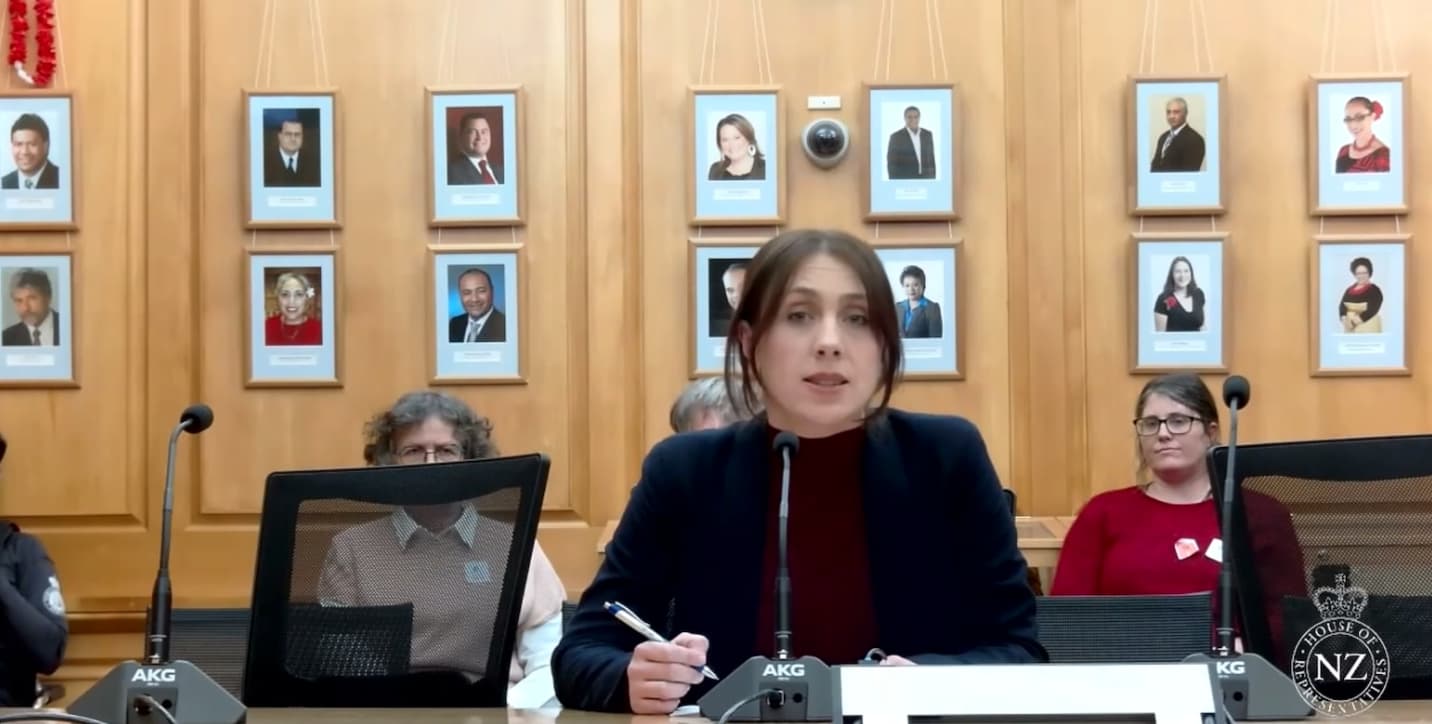A new documentary made by indigenous activist Chris Huriwai and local director Amy Taylor called ‘Milked’ premiered in Dunedin on 7th November 2021. The Milked the movie is made by local director Amy Taylor who has a string of great local documentaries under her belt, including ‘Beyond the Kelp’ about Māui dolphins, and Soul of the Sea about Moko the solitary dolphin.
It’s really good, in a terrifying kinda way. I think every New Zealander should see it.
Milked the movie, takes a look at industrial dairy farming in New Zealand and shows how it systematically ‘milks’ animals, consumers, farmers, rivers, the land and the climate.
Milked trailer
Where to watch Milked
Milked is now available globally via the streaming platform Waterbear, and on Youtube via Plant Based News.
Milked shows how vast quantities of synthetic nitrogen fertiliser applied to land, and imported feed like palm kernel expeller (PKE) from Indonesian rainforests, lead to too many cows in Aotearoa. It details how that leads to health problems for people, to polluted rivers and lakes, misery for farm animals, and rising climate emissions.
Milked peels back the cynical marketing spin that’s used to hide dairy giant Fonterra’s environmental destruction. Fonterra products are everywhere – in your local dairy, in your supermarket, and promoted around the world, under a ‘Dairy for Life’ headline. Milk is even promoted in schools to instill a lifelong habit of dairy consumption, despite the fact that many people are lactose intolerant and the claimed benefits of dairy consumption are highly debatable.
Amongst other people, the Milked documentary interviews Greenpeace Aotearoa’s Gen Toop, who clearly lays out the problems with industrial agriculture. It’s wasteful of precious water resources, pollutes rivers so they are no longer safe for swimming, and is our leading climate polluter. Here’s Gen in her own short documentary about the problem with synthetic nitrogen fertiliser.
Milked is brutal and tragic in parts, detailing how there are two million unwanted, newborn bobby calves taken from their mothers and sent to slaughter every year in New Zealand. It reveals the human and animal impact of diseases arising from intensive animal agriculture, including mastitis and mycoplasma bovis, which has seen more than 171,000 cows killed to avoid the spread of the disease.
It’s also heavy with irony, showing agribusiness representatives who don’t want to – or can’t – face up to the impacts of irrigation on river water flows, of PKE on Indonesian rainforests or the brutal treatment of cows and calves.
Milked reveals the psychological and financial duress this industrialised agriculture system imposes upon farmers. They are stuck in a system which promises a natural way of life and delivers financial pressure and diminishing social licence. Farmers are left alienated in an industrial system not of their own making.
98% of the synthetic nitrogen fertiliser used in Aotearoa comes from two companies, Ravensdown and Ballance Agri-nutrients. They push the fertiliser on farmers, but take no responsibility for the effects on the climate, on rivers and on people’s health.
Beyond the obvious environmental and animal welfare concerns shown in the film, industrial dairy’s contribution to climate change is also a killer. Agriculture is New Zealand’s biggest climate polluter, from belching and farting cows, enabled by massive amounts of synthetic nitrogen fertiliser, as well as direct emissions from fertiliser to land. Industrial dairying and the synthetic nitrogen fertiliser that fuels it, are a triple whammy to the environment – polluting rivers, poisoning drinking water and destabilising the climate.
But Milked is also hopeful.
Plant based alternatives offer a lifeline to farmers despondent about the broken system they’re seemingly trapped in. There are examples of ex-dairy farmers who have converted to growing veggies, oats for milk, and hemp. The movie shows vat and lab milk using animal proteins to create cow milk without the cow, which promise to disrupt conventional industrial dairy production.
And as the interview with Gen Toop shows, we can fix this broken system by eliminating synthetic nitrogen fertiliser, lowering cow stocking numbers, and switching to more plant based organic regenerative agriculture. We can heal the land, our rivers and the climate if we use our collective power to push for system change. Just like we put an end to new offshore oil and gas exploration, if we work together to apply pressure to Government and industry, we can fix farming.
I recommend that you see Milked the movie. You’ll go away angry about Fonterra and the fertiliser companies that drive the intensive dairy industry – Ravensdown and Ballance, but also inspired to take action. You’ll see that the system itself needs to change, and you’ll likely want to do more than swap out your morning milk choice.
And that’s where we can help.
Greenpeace is working hard to force systemic change that will replace the broken industrial agriculture model, with a better way of farming. Organic regenerative farming which works with nature rather than against it and recognises that we can produce food AND have healthy rivers, a stable climate and food for everyone.
Here’s some things you can do right now, and there’s much more to come.
Join the call on Government to support farmers to shift to regenerative agriculture
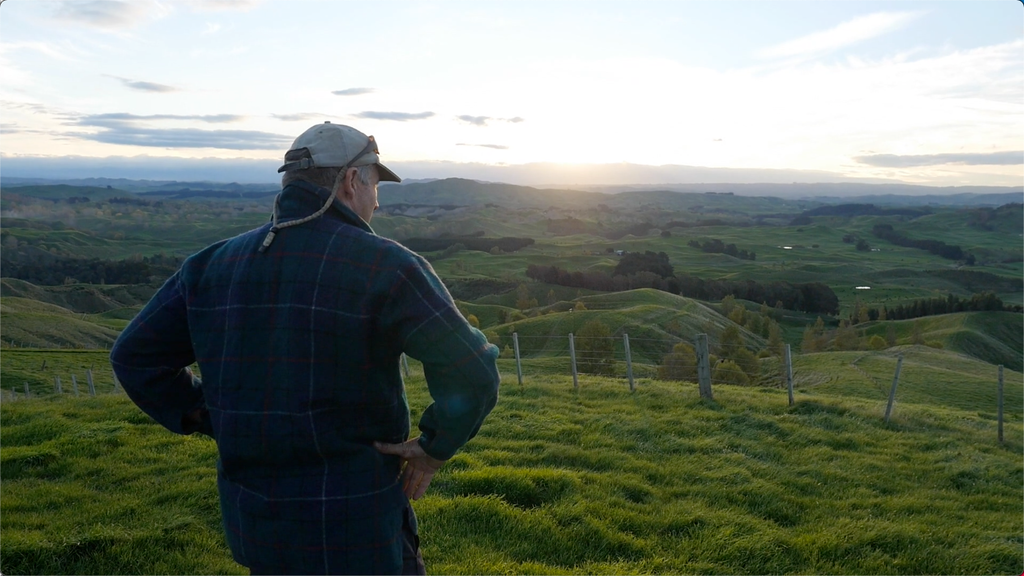
Imagine a New Zealand where farming can clean up our rivers, tackle the climate crisis and make sure every Kiwi has fresh, healthy food.
Regenerative agriculture works with the environment, not against it. Regenerative farmers treat their farms as an ecosystem, not a factory.
Eliminate synthetic nitrogen fertiliser
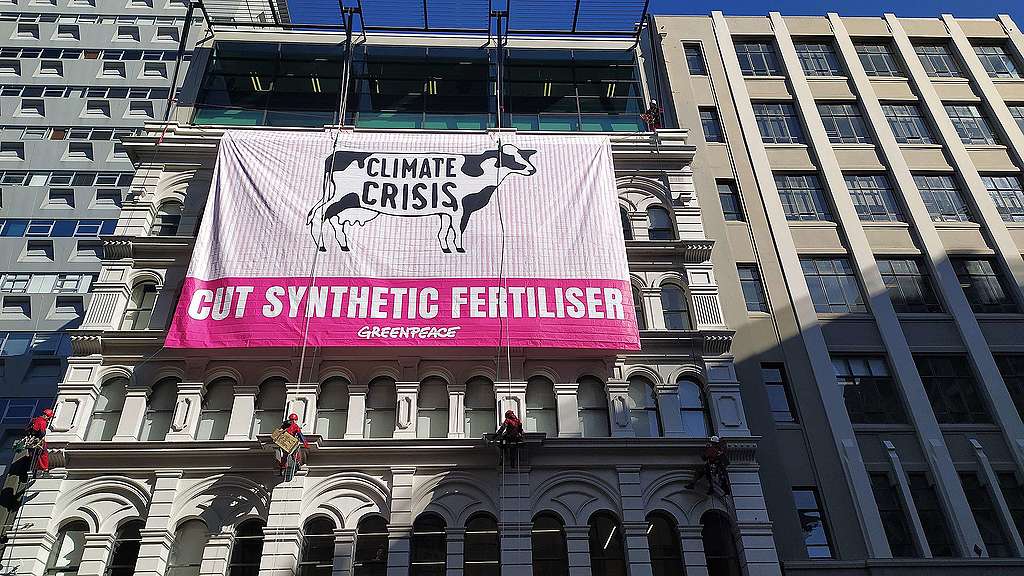
Synthetic nitrogen fertiliser is one of the key drivers of intensive industrial dairying. And synthetic nitrogen fertiliser is a double whammy of destruction. It’s more of a killer than a fertiliser.
Synthetic nitrogen fertiliser is a key driver of intensive dairying and is a significant climate and water pollutant. Recent studies have linked synthetic nitrogen fertiliser and intensive dairying to nitrate contamination in drinking water, associated with increased risk of bowel cancer and premature births.
Ban imported feeds like PKE
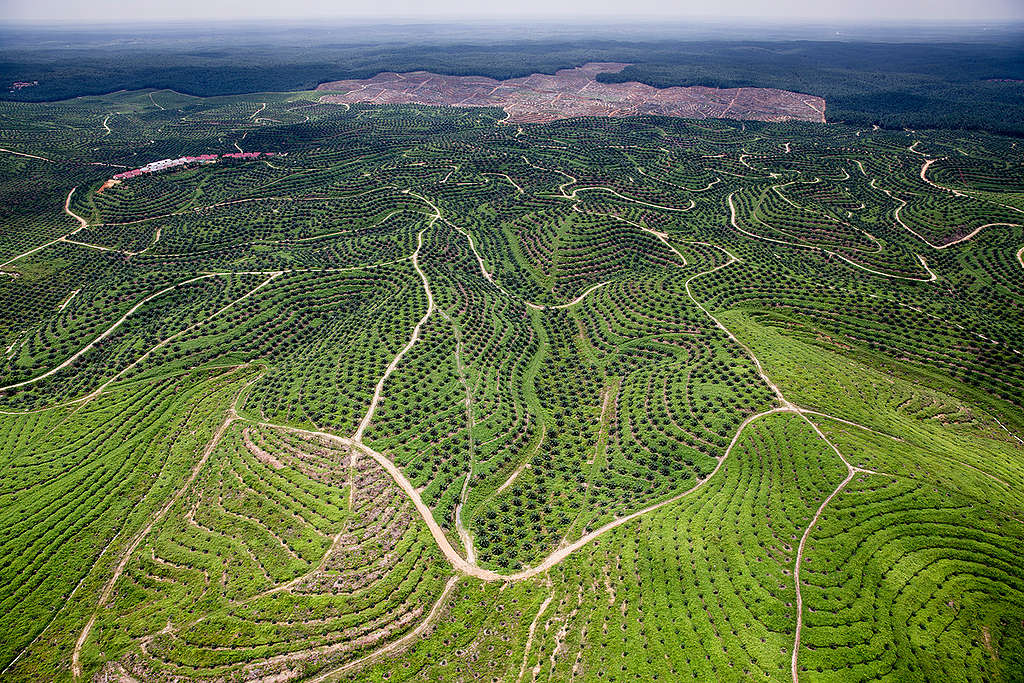
Just like synthetic nitrogen fertiliser, supplementary feeds like PKE are required by the intensive industrial dairy system because, even with all those chemicals, there still isn’t enough grass to feed the grossly bloated dairy herd. The use of PKE in Aotearoa also supports the destructive palm oil industry that is displacing indigenous peoples and local communities, killing wildlife and creating a toxic haze that endangers millions of lives.
Stop intensive winter grazing / mud farming
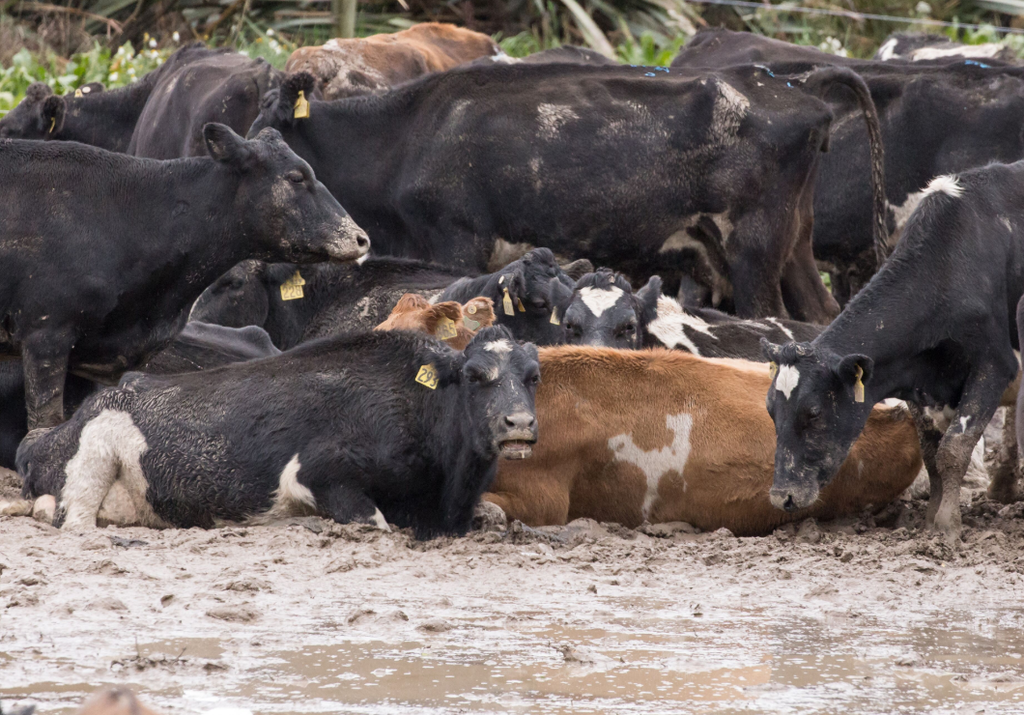
Another consequence of having too many cows, is that in winter there isn’t enough grass to go around and in some areas, cows are fed using a practice called ‘intensive winter grazing’ which is coming to be known as mud farming because it means overstocked paddocks churned to mud. Cows spend months at a time in muddy paddocks often wallowing up to their udders and even giving birth in filth. It has to stop.
Donate now to keep us in action
Greenpeace is working hard to take on the powerful industrial agriculture industry, and because we are strictly independent and never take money from Government or business, everything we do is thanks to contributions from people like you.


